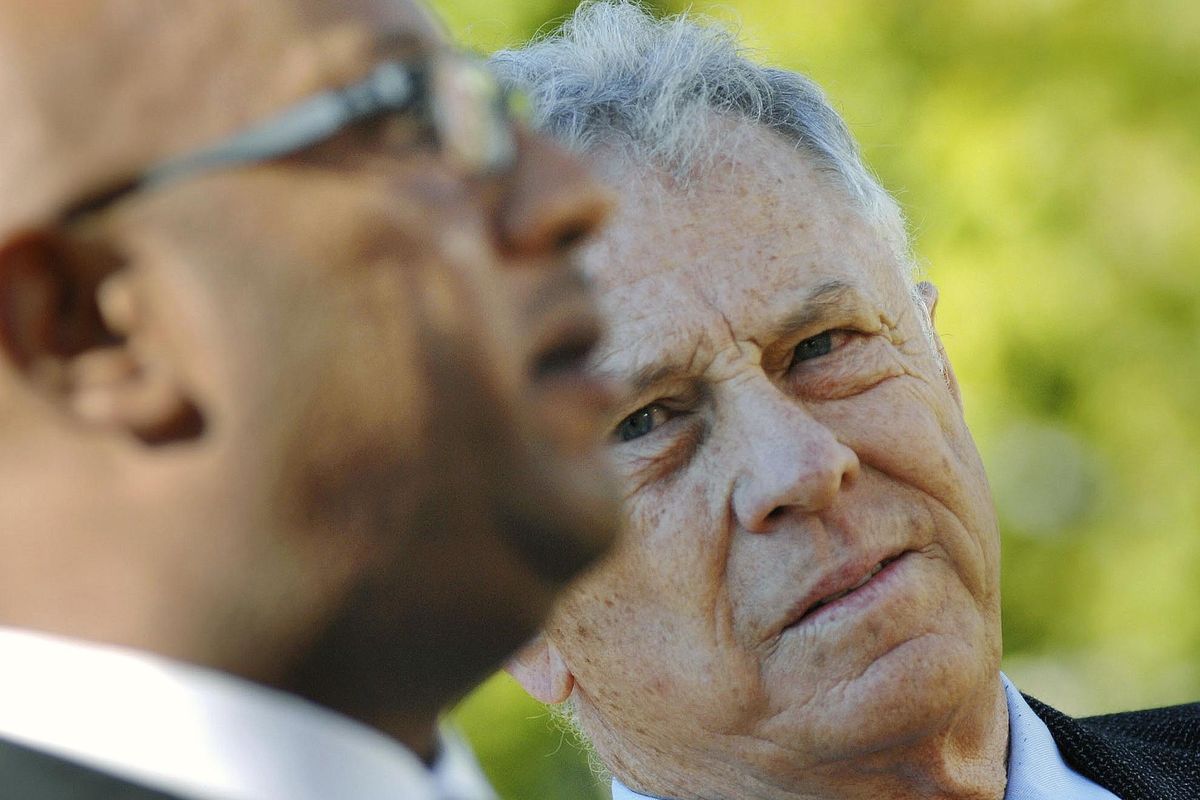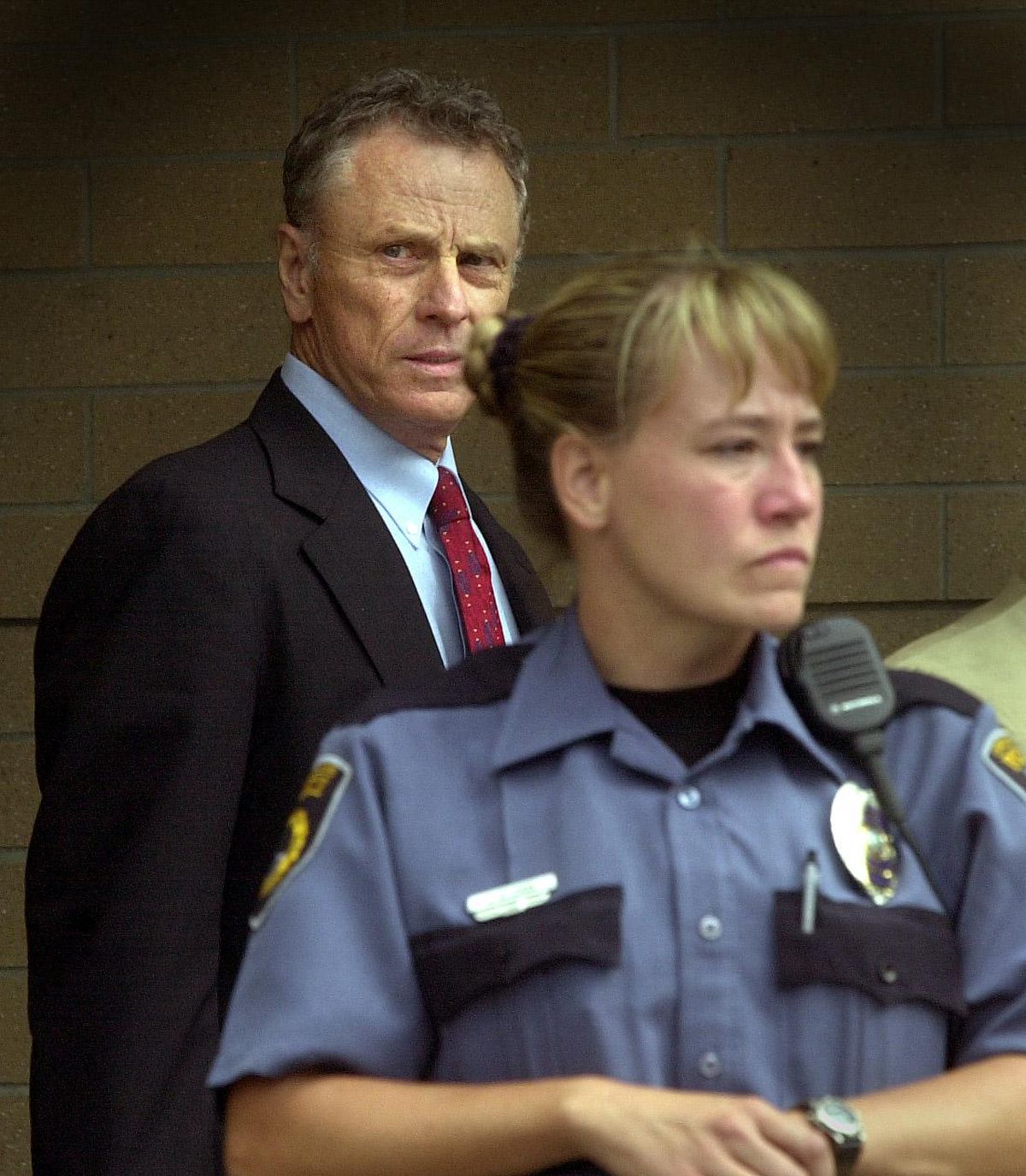Southern Poverty Law Center fires co-founder Morris Dees, civil rights attorney behind bankruptcy of North Idaho’s Aryan Nations

Morris Dees, a nationally known civil rights attorney who was instrumental in a civil lawsuit that bankrupted North Idaho’s Aryan Nations, was fired Wednesday from the Southern Poverty Law Center, the organization he co-founded in 1971.
Without giving many details in a Thursday statement, SPLC President Richard Cohen said the organization was committed to “ensuring that the conduct of our staff reflects the mission of the organization and the values we hope to instill in the world.”
“When one of our own fails to meet those standards, no matter his or her role in the organization, we take it seriously and must take appropriate action,” Cohen wrote. When pressed for more details on the decision, a spokesman for the SPLC told the Washington Post that he “can’t comment on the details of individual personnel” and did not anticipate other statements on the matter.

The statement continued: “Today we announced a number of immediate, concrete next steps we’re taking, including bringing in an outside organization to conduct a comprehensive assessment of our internal climate and workplace practices, to ensure that our talented staff is working in the environment that they deserve – one in which all voices are heard and all staff members are respected.”
Dees was the intellectual center of the SPLC, said Norm Gissel, the Coeur d’Alene attorney who led the lawsuit that eventually delivered a $6.3 million verdict against the Aryan Nations, its late leader, Richard Butler, and three of his followers.
Gissel had not heard of Dees’ firing until contacted by The Spokesman-Review, but said he was “a great fan of his.”
“Ideologically, he was the Southern Poverty Law Center,” he said. “It’s hard to imagine the Southern Poverty Law Center without Morris and Morris without the Southern Poverty Law Center.”
By Thursday afternoon, his biography had been scrubbed from the the SPLC’s website, but a cached version of the page lists his awards and lauds him for “innovative lawsuits that crippled some of America’s most notorious white supremacist hate groups,” according to the Washington Post.
In 2006, the National Law Journal named Dees one of the 100 most influential lawyers in America.
The Montgomery Advertiser, located in the same city as the SPLC, recounted its previous coverage of Dees in an article describing his removal.
It pointed to a 1994 series it produced that “provided a deep look into the organization controlled by the multimillionaire Dees, illustrating his near-singular control over the organization and its mammoth budget.”
A finalist for the Pulitzer Prize, the series told of a “figure seen as heroic by some and single-minded by others” who was more concerned with raising money than litigating.
The series also alleged “discriminatory treatment of black employees within the advocacy group, despite its outward efforts to improve the treatment of minorities in the country.” At the time, SPLC staffers “accused Morris Dees, the center’s driving force, of being a racist and black employees have ‘felt threatened and banded together.’ ”
The organization denied the accusations when the series ran.
Leading to the 2000 verdict in Idaho’s Kootenai County, the SPLC spent $350,000 on the case against the Aryan Nations, Gissel said.
What started with a $35 bill for an X-ray for Victoria Keenan, who had been hit in the ribs with a rifle by Aryan Nations members, led to the multimillion dollar verdict.
Keenan and her son, Jason, were chased, fired at and assaulted after passing the white supremacists’ property on July 1, 1998.
Dees came to town and “worked diligently for the better part of a full year almost exclusively on this case,” Gissel said. “He just outworks everybody. Brilliant law equals hard work.”
Dees also had tape recordings of Butler and his companions making violent and racist statements.
“They had everything that Richard Butler said publicly and on videotape to quote and ready to draw up and to cross-examine everything he had to say,” Gissel said.
One “character witness” for Butler was taped telling a group that it was OK to kill African-Americans. That recording was used to impeach the witness when he lied on the stand and said he hadn’t made statements that would incite violence.
“He was absolutely essential to the case,” Gissel said.
If the suit had been unsuccessful, Gissel said, “I would’ve moved. I would’ve had to have moved.”
“It would’ve caused a rise in the Nazis in the Inland Northwest in a very bloody way and it would’ve been very dangerous to remain here,” he said. “It’s not hard for most people to believe that Nazis are bad and a lawsuit against them caused a number of Nazis to move away. It’s not a hard sell.”
The Washington Post contributed to this report.